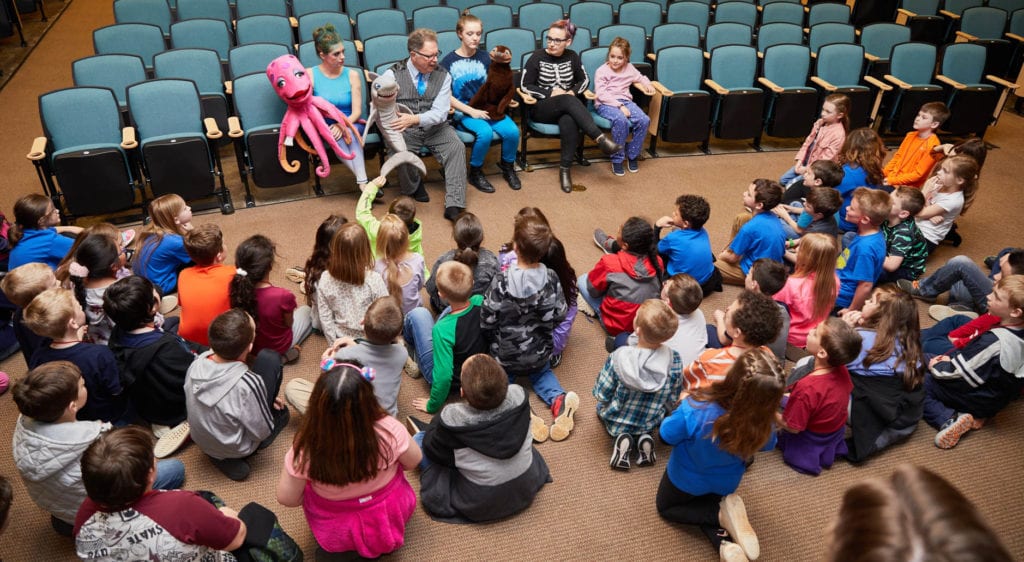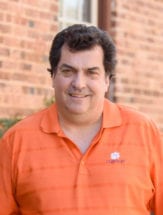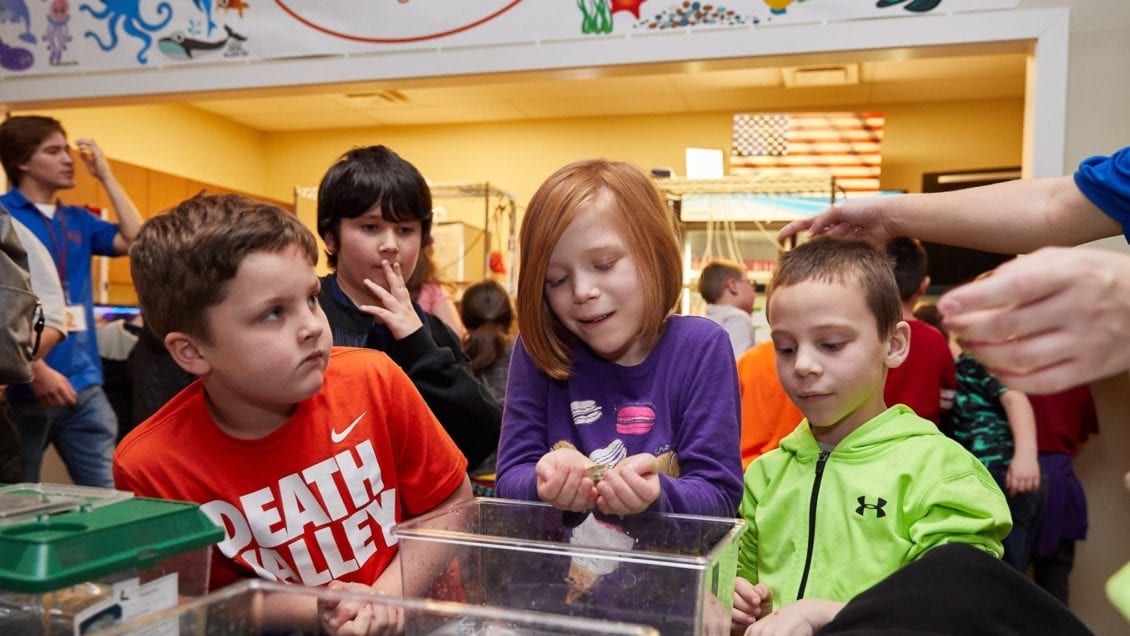CLEMSON, South Carolina – Concerns over climate and our oceans’ health haven’t changed since a Clemson University scientist, some graduate students and a local playwright started “Something Very Fishy” two years ago.
But the way the program delivers its marine conservation message to elementary school students this year is changing because of the coronavirus pandemic.
“Something Very Fishy” is shifting to online.
“Something Very Fishy” is a collaboration of the College of Science, the Department of Biological Sciencesand Educational Entertainment LLC, a company founded by Kathy Prosser, a playwright and award-winning children’s songwriter. She wrote “Something Very Fishy” while she lived in Australia. Originally centered around the Great Barrier Reef, Prosser adapted the play to be more relevant in the United States.

Told through the story of young science major and coral transplantation researcher Sandy Carson, local fisher Mr. Stu Pidder and Boss the Great White Shark and his marine friends, “Something Very Fishy” addresses ocean health and how climate impacts it.
With the help of dozens of undergraduate Creative Inquiry students, the fully immersive arts and sciences (STEAM) outreach program reached around 4,000 students in kindergarten through fifth grade during its first two seasons.
“Something Very Fishy” had two major in-person components – a Broadway-like musical theater production with catchy songs, colorful sets and memorable characters; and interactive marine exhibits following the show. But restrictions on the size of indoor gatherings and changes in educational delivery at some schools have forced some changes.

“There was never any question in our minds that we wouldn’t find a way to reach students,” said Michael Childress, an associate professor in the College of Science’s Department of Biological Sciences.
Childress said the live theatrical component effectively limited “Something Very Fishy” to schools in three Upstate counties. This year’s online program has a much wider distribution, including schools from Myrtle Beach, Sumter and Camden.
“What we’re able to do with the online program that we couldn’t do with the live performance is reach many, many more schools throughout the state of South Carolina,” Childress said. “This is just the beginning. We’re working toward being able to offer this program nationally.”
The online program includes ocean literacy interactive learning modules, lesson plans and student and teacher workbooks.
The exhibits that give students insight into various aspects of marine biology and different scientific careers are moving online, too, said Randi Sims, a Biological Sciences graduate student at Clemson. Creative Inquiry students are designing the exhibits and will lead the breakout rooms. The live-stream online exhibits will take place the first week of March. Elementary school teachers and homeschool groups may contact Childress at mchildr@clemson.edu for more information about the “Something Very Fishy” program or to be put on a waiting list.

“Will we be able to achieve our goals to educate children, increase their awareness and motivate them to do something positive and be part of the solution to the issues we’re facing? The answer is absolutely yes,” Prosser said. “Can we have the same arts component right now? No, but that’s the beauty of having this collaborative. Initially, we were driven a lot through the arts component. Now, I think we’re going to be more driven by the science component.”
Childress said an online setting won’t be able to duplicate the live theater experience.
“It’s so moving and so stunningly visual that literally you could hear the gasps coming from the children. You could hear the emotion the show was provoking,” he said. Regardless, Sims and her team are trying to make the exhibits as visually engaging and fun as they can so that the online version can come alive to invoke some of this same enthusiasm.
For Tallapragada, the COVID-induced change in delivery is “like the world giving you a natural experiment” because she’ll be able to compare results from both formats.
But “Something Very Fishy” organizers plan to put the arts component back into the program as soon as it’s safe to do so.
“I think the way forward is when they allow people into the schools is to take the production to the schools instead of having students come to the theater,” Prosser said. “That gives us a happy balance, a midway point between the big production and the online version.”

Assessments have shown that “Something Very Fishy” is making a difference, said Meghnaa Tallapragada, a former assistant professor in Clemson’s Department of Communication who now works at Temple University.
While COVID has caused “Something Very Fishy” collaborators some anxiety, it has also reinforced why they created the program.
“COVID has re-emphasized we’re all in this together, and the entire world has to work together to solve its problems. That’s the take-home message for COVID. It’s also the take-home message for climate change,” Childress said. “The one hope I have is that we will learn how to work together as a world to address our problems by dealing with COVID, and we take that to heart in helping to heal the planet. Just like we have hope that we’re going to get past COVID, the message of our program is that, even though climate challenges are here, if we work together, we can get past that, too.”
Get in touch and we will connect you with the author or another expert.
Or email us at news@clemson.edu

